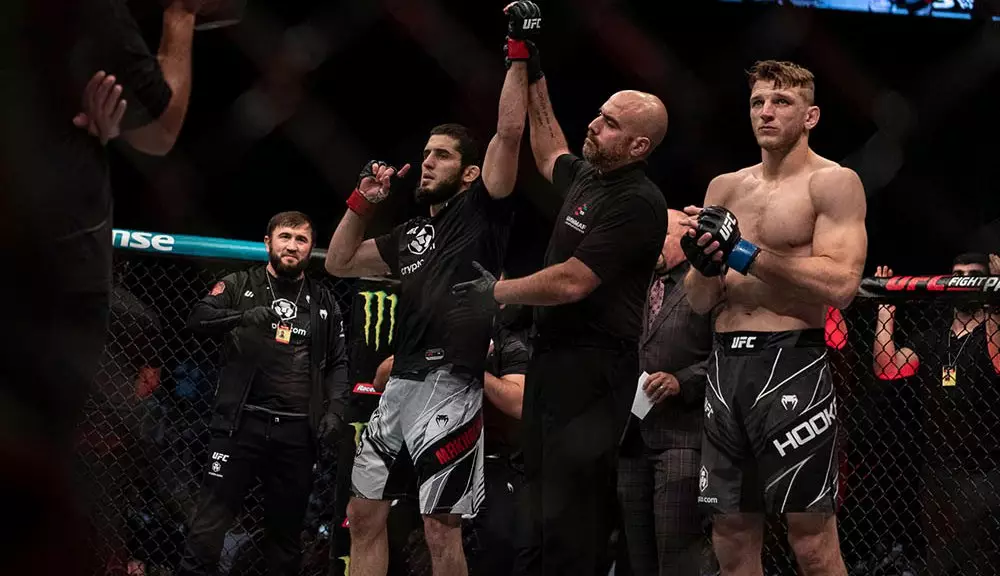In mixed martial arts (MMA), psychological factors can play a crucial role in determining the outcome of a fight. Dan Hooker, a seasoned fighter with personal experience against some of the sport’s elite, sheds light on this complex dynamic, particularly concerning Islam Makhachev and Khabib Nurmagomedov. The psychological weight of facing such dominant competitors can often bear down on fighters before the match even begins, impacting their performance in decisive ways.
Hooker’s reflections on his bout with Makhachev at UFC 267 serve as a poignant example of this mental minefield. After being submitted in the first round, he articulated how the looming presence of Makhachev, coupled with the legacy of Khabib, created a psychological barrier. “The myth of it is bigger than the actual task,” Hooker stated, emphasizing how the aura surrounding fighters like Makhachev and Nurmagomedov can be overwhelming for opponents. This mythology, built on Khabib’s undefeated record and dominant grappling, creates expectations and fears that can cloud a fighter’s focus and strategy.
Hooker’s observations extend beyond personal experiences to predictions about future fights, particularly Makhachev’s upcoming title defense against Arman Tsarukyan at UFC 311. The rematch promises more than just a competition of physical skills; it will also be a test of mental fortitude. Hooker hints that the psychological edge Makhachev carries could play a significant role in the fight’s dynamics. In their first encounter, Makhachev’s grappling proved superior, yet Hooker predicts that a more prepared Makhachev will be even more effective, hinting at the importance of mental readiness alongside physical training.
The evolution of a fighter’s mindset is crucial as they progress in their careers. Hooker’s statement that “once he has more time to study and break down Arman’s counter-wrestling” suggests that preparation goes beyond mere physical training; it’s about closely analyzing an opponent’s tactics and creating a mental game plan. This aspect of fighting, often understated, is becoming increasingly significant as the sport evolves.
Hooker’s journey in the octagon is also a testament to resilience and adaptation. Since his loss to Makhachev, he has successfully recalibrated his approach, achieving three victories out of four bouts, with the latest being a narrow decision victory over Mateusz Gamrot. This resilience is vital not just for Hooker’s career but also serves as a lesson for fighters facing the daunting pressure of competing against established champions.
As UFC continues to evolve, understanding the psychological elements of fighting can provide an invaluable edge. Dan Hooker’s insights highlight the significance of mental preparation alongside physical skills in the sport. As opponents confront the imposing figures of champions, they must navigate both the physical and psychological landscapes of the fight, proving that success in MMA is often as much about the mind as it is about the body.

